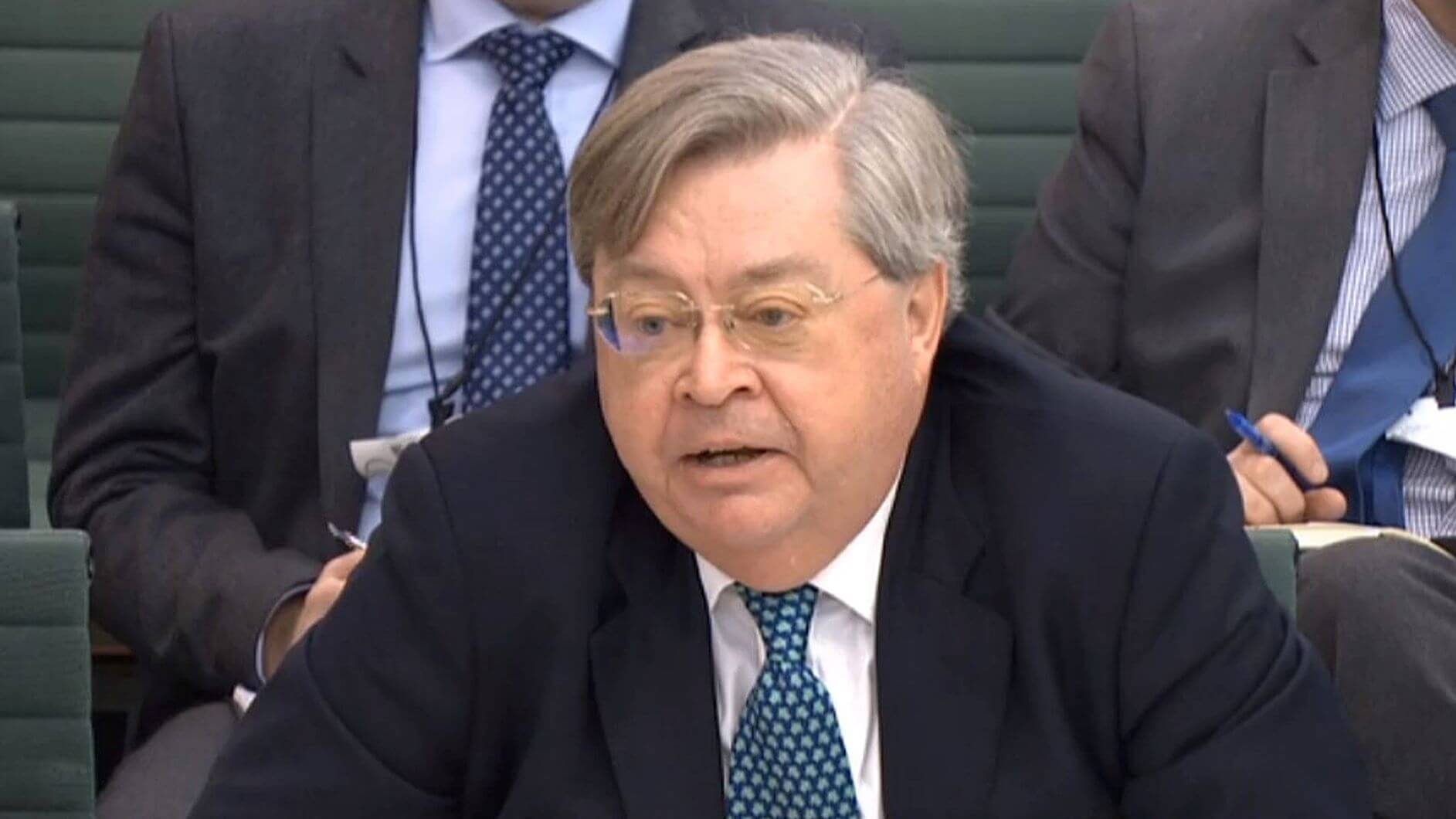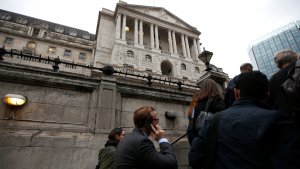Ian McCafferty said small suppliers are at risk if uncertainty forces more firms to shift production out of the UK.
Brexit Delay Keeps Stranglehold On Economy, Warns Former BoE Policymaker
Ian McCafferty said small suppliers are at risk if uncertainty forces more firms to shift production out of the UK.

Delaying Brexit will consign Britain’s already weak economy to “sluggish” growth and risks a further manufacturing exodus until a deal is struck, a former Bank of England rate-setter has warned.
Ian McCafferty – who sat on the Bank’s Monetary Policy Committee (MPC) for six years until last August – told the Press Association if the EU approves a delay to Article 50 with no clear plan for a deal at the end, the uncertainty will wreak further havoc on the economy.
He said the sharper than-expected slowdown in business investment, which was largely behind the weak growth of 0.2% in the fourth quarter of 2018, would continue as firms halt large-scale strategic investments.
In a sobering take on the prospects for the economy, he said small suppliers face the threat of going out of business if large manufacturers start ditching the UK in droves amid political dithering.
He said: “A longer-term delay would continue the issue of business uncertainty and lack of confidence.
“It would probably continue to see the economy grow very sluggishly.”
He added that large firms will be increasingly forced to put contingency plans into place, which may mean more moves to shift production and operations out of the UK.
“The longer the uncertainty continues, the more it’s clear that businesses are finding it difficult simply to wait,” he said.
Mr McCafferty, who joined Oxford Economics as senior adviser last month, said even if a delay of a year or two was accompanied by the prospect of a better Brexit outcome at the end, there would still not be an immediate bounce back in the economy.
Businesses want to see firm details of trading relationships before committing to investment, he said.
“Until the degree of uncertainty is properly resolved and there is much greater clarity on the future of the trading relationship, I’m not sure we’ll see business confidence and business investment rallying dramatically,” he cautioned.
His comments come ahead of the Bank of England’s MPC meeting on Thursday, when it is set to keep interest rates firmly on hold at 0.75% amid the Brexit maelstrom.
Bank governor Mark Carney has also recently warned that delaying Article 50 is not a better option than a deal or transition period, telling MPs earlier this month that uncertainty will linger for at least a year even after an agreement is struck.
Oxford Economics is currently predicting a 60% chance that Prime Minister Theresa May’s deal will eventually go ahead, albeit with amendments.
Given that the MP votes are not yet legally binding, it believes there is still a 35% chance of the UK crashing out without a deal – and a 5% probability of Article 50 being revoked completely.
While a delayed Brexit deal will inflict yet more uncertainty on Britain’s beleaguered businesses, a no-deal outcome would still be a far worse outcome in the short term, said Mr McCafferty.
Oxford Economics is forecasting a no-deal Brexit would wipe at least 2% off gross domestic product (GDP) in the next two years – tipping the UK into recession.
Mr McCafferty said the UK’s already “weak economy” is likely to have eked out growth of just 0.1% to 0.2% in the first quarter of 2019 – a far cry from the 0.6% growth seen last summer amid the heatwave and World Cup boost.
He said the MPC has “limited room for manoeuvre” to boost the economy, with rates already not far off zero and increasing political resistance to further quantitative easing (QE).
Given the “shifting attitudes” to QE, he questions if the Bank could use it again, with politicians blaming it for increasing inequality in the UK since the financial crisis.
But he said the better position in the public finances should allow the Chancellor to use his fiscal firepower to bolster the economy in tandem with monetary policy.
Mr McCafferty – whose new role sees him provide boardroom-level consultancy for large companies on issues such as the economy and Brexit – left the MPC just before the worst of the Brexit turmoil.
But he dismissed suggestions he left at the right time.
He said: “I envy my colleagues who are still on the committee – it’s a fascinating time to be on the MPC.”
By Holly Williams, Press Association Deputy City Editor.
Thanks for signing up to Minutehack alerts.
Brilliant editorials heading your way soon.
Okay, Thanks!

